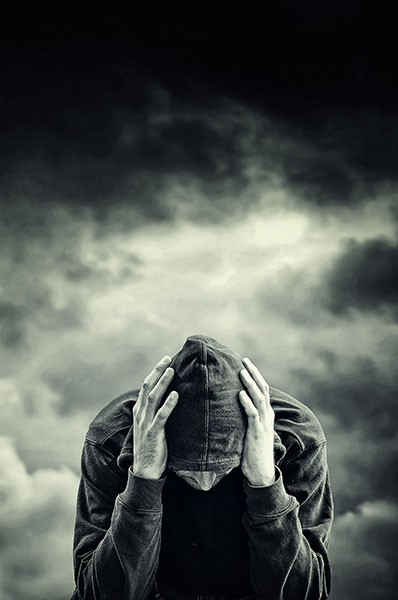Prescription Drug Addiction & Abuse
When prescription medication is abused, it is used in a way that is unsafe or unintended. Increasing the dosage or using the drug other than as prescribed can risk addiction, this is also true for those who buy prescription drugs illegally. It is the early detection of prescription drug abuse and addiction that assists in combatting its misuse and negative impact on different aspects of your life. The following guide explains what prescription drug addiction is, the warning signs and how to seek help for prescription drug addiction.
What is Prescription Drug Addiction?
A prescription drug is dispensed by a GP; however, many types of prescription drugs are also sold on the black market. Because these drug categories carry a higher risk of abuse and misuse compared to over-the-counter drugs, a GP would only prescribe them typically for short periods of time.
Prescription drug addiction is defined as persistent drug abuse despite its negative consequences. Users of prescription medication may be aware of the risks but continue to ingest the drug outside of the prescribed parameters. This can include injecting, snorting, and increasing the recommended dosage. Individuals who are addicted to prescribed medication find they are unable to quit using them on their own.

Prescription Drug Abuse
There are many different types of prescription medications and each of these can be abused or carry the risk of addiction. Painkillers, anxiety medication, and sleeping pills are often misused. These classes of drugs are part of chronic care and prescriptions which increases the risk of developing dependence and withdrawal.
One of the tell-tale signs of developing addiction to prescription medication is the increased use of the drug. If you experience pain and build a tolerance to the prescription, you may no longer find relief with the recommended dose. This leads to the use of higher doses. Along with an increase in the dosage, many also start to use meds more frequently. When medications are used outside of the recommended guidelines, it can create prescription drug abuse which can lead to addiction and a stronger dependency.
Commonly Abused Prescription Drugs
Most types of prescription drugs can be abused and risk addiction. For many people, increasing the dosage on some of the more common medications are not given a second thought. This is because we believe these medications are safe to use and do not fall into the category of illicit drugs. From painkillers and stimulants to medication for insomnia, we look at the most commonly abused prescription drugs to help you identify a problem and find the help you need.
Stimulants
Stimulants are drugs that create alertness and awareness. When drugs in this category are ingested in large amounts, it increases anxiety, paranoia, and panic. The mind and body become overstimulated and can cause both mental and physical adverse effects (ADF Drug and Alcohol Foundation). Amphetamine is a stimulant medication.
Amphetamines such as Ritalin/Concerta (methylphenidate), and Dextroamphetamine are prescribed to those with ADHD and narcolepsy. Ritalin and Concerta are the same drug with different branding. Because the chemical consistency is similar to cocaine and amphetamines, it has a high rate of addiction. Taking Methylphenidate and Dextroamphetamine at an increased dosage will risk addiction.
Benzodiazepines
When you hear the names of medications such as Xanax (Alprazolam), Restoril (Temazepam), or Valium (Diazepam) you may recognize some of the commonly used prescription drugs across the UK and US. These drugs are benzodiazepines and while popular medications, it is also associated with the highest rates of prescription drug addiction.
Benzodiazepines are addictive because they work on the central nervous system. It interacts with GABA receptors to produce a calming effect. It is the sedative effects of benzodiazepines that make these drugs so addictive and difficult to overcome.
Opiates and Opioids
Opioid addiction is rife across the US and the UK. Codeine, morphine, and fentanyl are popular prescription opioids that are often misused by snorting the powder of crushed pills or injecting the drug.
Opioids have a high addiction rate because it regulates feeling of pleasure. It works by binding to and activating the receptors in the brain which produces high amounts of dopamine (NIH). Because dopamine is considered a “feel good” hormone, it simply reinforces the connection between the use of the opioid and pleasure.
Sleeping Pills
Sleeping pills such as Zopiclone are non-benzodiazepines but have similar sedative effects. This class of hypnotics has a high potential for abuse. Although the drug is prescribed for a short period only, it poses considerable risk for prescription drug dependence.
This is owed to the high rate of tolerance most people develop while taking it. Prescription sleeping pills such as Zopiclone also work similarly to alcohol and benzodiazepines which are nervous system depressants. This means faster rates of tolerance to a prescribed dose and potential for abuse.
How Prescription Drug Addiction Develops
A prescription drug addiction does not develop with every person and it may not develop when prescriptions are used as instructed. However, prescription drug abuse is on the rise and this owed to the potential for abuse and addiction. Let’s explore the reasons for the development of prescription drug addiction.
Repeat Exposure
Repeat exposure to a specific drug means that more you use the drug, the greater your tolerance. You have to use more of the same drug to achieve the desired effect (Science Direct).
If you are taking a benzodiazepine to help with relaxation or sleep, you may be prescribed one tablet daily. Over time, you find that one tablet no longer assists with sleep, so you take two every day. Because you start building a tolerance, the dose continues to rise which places you at risk for abuse and addiction of prescription drugs.
Trauma & Mental Illness
Studies have shown that individuals who have experienced trauma or have been diagnosed with a mental health condition are at greater risk of addiction. Post traumatic stress and ailments including depression can affect mood and emotions. When taking an opioid that elevates mood, it creates a connection between the drug and pleasurable feelings. This increases the potential for prescription drug abuse and addiction.
Those with mental health disorders who have a comorbid substance use disorder will require an individualised treatment plan. This is referred to as a dual diagnosis.
When seeking treatment for prescription drug abuse and addiction, the facility should offer therapy for dual diagnosis patients.

A Family History of Addiction
A popular question in managing addictions is whether there is a genetic or family history associated with prescription drug abuse and addiction. The link between drug addiction and genetics cannot be explored without the interplay of the environment. Not all children who have a parent or both parents who are addicted to drugs will grow up to become addicts themselves.
A major determinant of developing drug abusive or addictive tendencies as an adult is to consider the influence of the environment. Repeated exposure to specific addictive habits and family norms surrounding drugs and alcohol can predispose one to addiction (NIH).
Studies involving familial history have shown a higher risk where first generation relatives have suffered from drug or alcohol dependence.
Enter your phone number below and one of our qualified addiction specialists will get in touch to discuss your options.

Signs & Symptoms of Prescription Drug Addiction
If you find yourself consuming more than the prescribed dosage, rushing to the pharmacy to plead for additional medication, or having to speak to a GP in attempts to receive prescriptions, you may be showing signs of addiction.
Prescription drug abuse and addiction are considered when individuals use the drug outside of the safe parameters as discussed with their doctor.
To help you understand prescription drug addiction we look further at the signs and symptoms of problem drug use.
The symptoms of prescription drug misuse will depend on the specific category of drugs used. As each drug has it own set of side effects, the improper use of these medications can lead to mental and physical adverse reactions.
Opioid use can cause confusion, anxiety, euphoria, slow breathing rate, and a lack of coordination.
Stimulant abuse can lead to insomnia, nausea, paranoia, agitation, high blood pressure.
For prescription medication, addiction and abuse may be present with the following signs:
- Use of drugs outside of prescription guidelines
- Increased dosage of prescribed drug
- Continued use of the drug despite negative consequences
- Poor mood and heightened agitation
- Sleep disturbances
- Visiting multiple doctors for prescriptions
- Seeking prescription medication from the black market.
Why Prescription Drug Abuse is Dangerous
Prescription medication has not received the “bad wrap” that recreational or illicit drugs are associated with when it comes to safety. Most people assume that because prescription medication is legal, it should be safe. Unfortunately, drugs such as benzodiazepines can lead to severe withdrawal if discontinued too quickly.
Stimulants can raise blood pressure and heart rate increasing risk of a heart attack or stroke. Chronic opioid use can cause significant damage to an individual’s physical and mental well-being. Understanding the dangers of prescription drug abuse can help you or someone you know seek the appropriate treatment.

Getting Help for Prescription Drug Addiction
Getting help for prescription drug addiction is the first step towards recovery, health, and happiness. If you are ready to seek the support and the treatment for prescription drug abuse and addiction, we look at how and where you can find the help you need.
Talk to your GP
One of the first steps you can take to overcome prescription drug addiction is to consult with a professional GP. Your GP can prescribe alternative medication to assist with symptom management. They can also advise on different prescription medications one can use to curb dependence. A GP can oversee the process and taper individuals off slowly.
Detox
Individuals who have been using medication chronically or who have been using medication incorrectly, may benefit from a medically assisted detox. The medically assisted detox is generally performed in a rehab facility with the assistance of a medical team. Individuals are monitored and supported by experienced professionals throughout their stay. The prescription medication in one’s system is slowly tapered in a safe and supported environment.
Rehab & Therapy
For those who have developed drug dependence or addiction by taking more than the recommended dosage or by purchasing drugs illegally online, seeking a private treatment facility offers a holistic plan for recovery. During a prescription drug rehab programme, individuals will remain at the facility for at least 20 to 30 days; however, the longer the better depending on the severity of addiction. Detox and therapy help individuals manage the underlying causes of addiction.
You can also look for therapy on an outpatient basis, such as with a private counsellor or therapist once a week.
